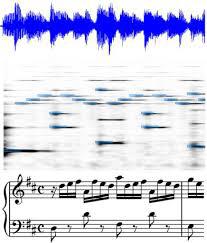Search Results for author: John Thickstun
Found 17 papers, 14 papers with code
Robust Distortion-free Watermarks for Language Models
2 code implementations • 28 Jul 2023 • Rohith Kuditipudi, John Thickstun, Tatsunori Hashimoto, Percy Liang
We generate watermarked text by mapping a sequence of random numbers -- which we compute using a randomized watermark key -- to a sample from the language model.
Anticipatory Music Transformer
no code implementations • 14 Jun 2023 • John Thickstun, David Hall, Chris Donahue, Percy Liang
We achieve this by interleaving sequences of events and controls, such that controls appear following stopping times in the event sequence.
Backpack Language Models
1 code implementation • 26 May 2023 • John Hewitt, John Thickstun, Christopher D. Manning, Percy Liang
We can interpret a sense vector by inspecting its (non-contextual, linear) projection onto the output space, and intervene on these interpretable hooks to change the model's behavior in predictable ways.
MAUVE Scores for Generative Models: Theory and Practice
1 code implementation • 30 Dec 2022 • Krishna Pillutla, Lang Liu, John Thickstun, Sean Welleck, Swabha Swayamdipta, Rowan Zellers, Sewoong Oh, Yejin Choi, Zaid Harchaoui
We present MAUVE, a family of comparison measures between pairs of distributions such as those encountered in the generative modeling of text or images.
Evaluating Human-Language Model Interaction
1 code implementation • 19 Dec 2022 • Mina Lee, Megha Srivastava, Amelia Hardy, John Thickstun, Esin Durmus, Ashwin Paranjape, Ines Gerard-Ursin, Xiang Lisa Li, Faisal Ladhak, Frieda Rong, Rose E. Wang, Minae Kwon, Joon Sung Park, Hancheng Cao, Tony Lee, Rishi Bommasani, Michael Bernstein, Percy Liang
To evaluate human-LM interaction, we develop a new framework, Human-AI Language-based Interaction Evaluation (HALIE), that defines the components of interactive systems and dimensions to consider when designing evaluation metrics.
Melody transcription via generative pre-training
1 code implementation • 4 Dec 2022 • Chris Donahue, John Thickstun, Percy Liang
The combination of generative pre-training and a new dataset for this task results in $77$% stronger performance on melody transcription relative to the strongest available baseline.
Diffusion-LM Improves Controllable Text Generation
1 code implementation • 27 May 2022 • Xiang Lisa Li, John Thickstun, Ishaan Gulrajani, Percy Liang, Tatsunori B. Hashimoto
Controlling the behavior of language models (LMs) without re-training is a major open problem in natural language generation.
Parallel and Flexible Sampling from Autoregressive Models via Langevin Dynamics
1 code implementation • 17 May 2021 • Vivek Jayaram, John Thickstun
This paper introduces an alternative approach to sampling from autoregressive models.
MAUVE: Measuring the Gap Between Neural Text and Human Text using Divergence Frontiers
3 code implementations • NeurIPS 2021 • Krishna Pillutla, Swabha Swayamdipta, Rowan Zellers, John Thickstun, Sean Welleck, Yejin Choi, Zaid Harchaoui
As major progress is made in open-ended text generation, measuring how close machine-generated text is to human language remains a critical open problem.
Faster Policy Learning with Continuous-Time Gradients
3 code implementations • 12 Dec 2020 • Samuel Ainsworth, Kendall Lowrey, John Thickstun, Zaid Harchaoui, Siddhartha Srinivasa
We study the estimation of policy gradients for continuous-time systems with known dynamics.
Rethinking Evaluation Methodology for Audio-to-Score Alignment
1 code implementation • 30 Sep 2020 • John Thickstun, Jennifer Brennan, Harsh Verma
This paper offers a precise, formal definition of an audio-to-score alignment.
Sound Audio and Speech Processing
An Information Bottleneck Approach for Controlling Conciseness in Rationale Extraction
2 code implementations • EMNLP 2020 • Bhargavi Paranjape, Mandar Joshi, John Thickstun, Hannaneh Hajishirzi, Luke Zettlemoyer
Decisions of complex language understanding models can be rationalized by limiting their inputs to a relevant subsequence of the original text.
Source Separation with Deep Generative Priors
1 code implementation • ICML 2020 • Vivek Jayaram, John Thickstun
This paper introduces a Bayesian approach to source separation that uses generative models as priors over the components of a mixture of sources, and noise-annealed Langevin dynamics to sample from the posterior distribution of sources given a mixture.
Convolutional Composer Classification
no code implementations • 26 Nov 2019 • Harsh Verma, John Thickstun
This paper investigates end-to-end learnable models for attributing composers to musical scores.
Coupled Recurrent Models for Polyphonic Music Composition
no code implementations • 20 Nov 2018 • John Thickstun, Zaid Harchaoui, Dean P. Foster, Sham M. Kakade
This paper introduces a novel recurrent model for music composition that is tailored to the structure of polyphonic music.
Invariances and Data Augmentation for Supervised Music Transcription
1 code implementation • 13 Nov 2017 • John Thickstun, Zaid Harchaoui, Dean Foster, Sham M. Kakade
This paper explores a variety of models for frame-based music transcription, with an emphasis on the methods needed to reach state-of-the-art on human recordings.
Learning Features of Music from Scratch
2 code implementations • 29 Nov 2016 • John Thickstun, Zaid Harchaoui, Sham Kakade
This paper introduces a new large-scale music dataset, MusicNet, to serve as a source of supervision and evaluation of machine learning methods for music research.
 Ranked #6 on
Music Transcription
on MusicNet
Ranked #6 on
Music Transcription
on MusicNet










